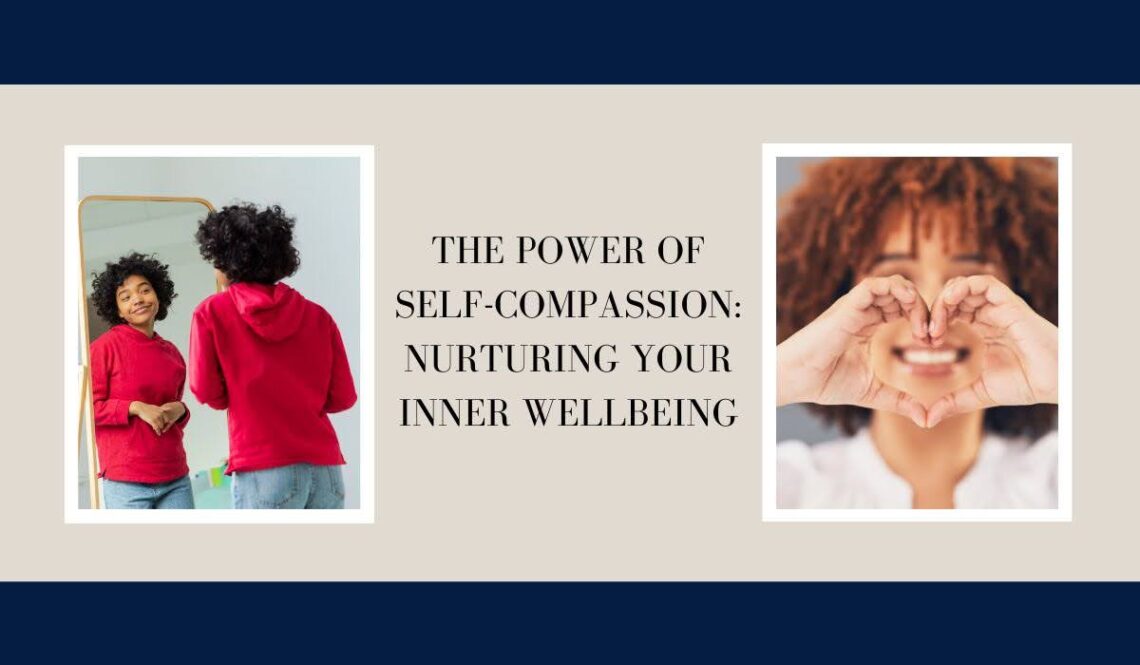
The Power of Self-Compassion: Nurturing Your Inner Wellbeing
In a world that constantly demands more—more productivity, more success, more perfection—it’s easy to become your own harshest critic. Whether you’re juggling a demanding job, caring for family, or simply trying to keep up with life’s pressures, self-judgment can take a toll on your mental health. Practising self-compassion offers a much-needed antidote: it allows you to treat yourself with the same kindness and understanding you would extend to a loved one.
What is Self-Compassion?
Self-compassion, a concept popularised by Dr Kristin Neff, involves acknowledging your struggles and responding to yourself with care instead of criticism. It’s built on three core components:
- Self-Kindness: Being gentle and understanding with yourself, especially during difficult times.
- Common Humanity: Recognising that everyone experiences struggles and imperfections—you are not alone.
- Mindfulness: Being aware of your thoughts and emotions without over-identifying or suppressing them.
Why is Self-Compassion Important?
Self-compassion is often misunderstood as being self-indulgent or unproductive, but research shows it has significant benefits for mental health and overall wellbeing. Practising self-compassion helps:
- Reduce stress, anxiety, and depression.
- Improve resilience and the ability to navigate challenges.
- Increase motivation and productivity without the burden of harsh self-criticism.
- Build a stronger sense of self-worth and emotional balance.
How to Practise Self-Compassion Daily
Here are practical steps to incorporate self-compassion into your daily life:
1. Challenge Your Inner Critic
Notice when negative self-talk arises. Instead of berating yourself for a mistake, reframe the thought. For example, replace “I can’t believe I failed” with “Mistakes happen, and I can learn from this experience.”
2. Write Yourself a Compassionate Letter
If you’re feeling overwhelmed or disappointed, write a letter to yourself as if you were comforting a friend. Offer words of reassurance, understanding, and kindness.
3. Practise Mindfulness
Mindfulness allows you to observe your thoughts and feelings without judgment. Simple techniques like deep breathing, body scans, or meditation can help you stay grounded in the present moment.
4. Set Healthy Boundaries
Learn to say no when needed and prioritise your wellbeing. Overextending yourself can lead to burnout and resentment.
5. Celebrate Your Efforts, Not Just Outcomes
Focus on the progress you’ve made rather than fixating solely on results. Small steps towards a goal are worth celebrating.
The Connection Between Self-Compassion and Resilience
Self-compassion strengthens resilience by helping you recover from setbacks more effectively. When challenges arise, instead of spiralling into self-blame, you’re able to pause, reflect, and move forward with a sense of balance.
For example, consider someone who didn’t meet a work deadline. Instead of harsh self-criticism (“I’m so useless”), a self-compassionate response would be: “I did my best under the circumstances, and I’ll learn how to manage my time better next time.” This shift in mindset reduces emotional suffering and encourages problem-solving.
Overcoming Barriers to Self-Compassion
Many people struggle with self-compassion due to misconceptions or long-held beliefs. Here’s how to overcome common barriers:
- Fear of Laziness: Self-compassion doesn’t mean avoiding responsibility—it encourages growth without self-punishment.
- Feeling Undeserving: Remember, everyone is worthy of kindness and understanding, including you.
- Belief that Criticism Drives Success: Research shows that self-compassion fosters motivation more effectively than harsh self-criticism.
Self-compassion is a powerful tool for improving mental health, resilience, and overall happiness. By treating yourself with kindness and acknowledging that struggle is a shared human experience, you create space for growth, healing, and inner peace.
In a demanding world, self-compassion isn’t a luxury—it’s a necessity. Start small, be patient with yourself, and remember: you deserve the same care and kindness that you so freely give to others.





